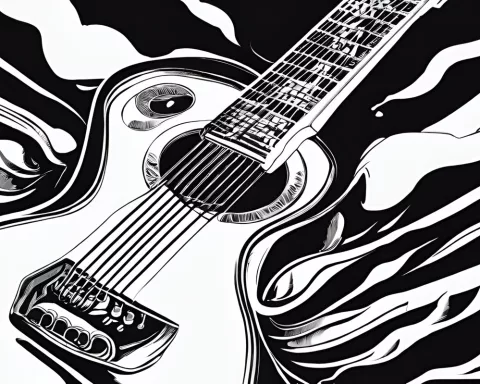The ‘Zombie’ remix, a tribute song to South Africa’s rugby coach Rassie Erasmus, has become an anthem for the Springboks. However, its appropriation from the original song’s historical background has sparked controversy among some Irish rugby fans. Despite this, the South African reaction has been indifferent, with some fans inviting Irish fans to the SA vs Ireland test matches in July. The controversy highlights the interplay of music, sport, and culture, as well as the importance of cultural sensitivity.
What is the ‘Zombie’ Remix and Why is it Controversial?
The ‘Zombie’ remix is a popular song played as a tribute to Rassie Erasmus, South Africa’s national rugby coach. The song has become an anthem for the Springboks and is played at matches. However, the song’s appropriation has sparked controversy among some Irish rugby fans who consider the song’s historical background. Despite the controversy, the South African reaction has been indifferent, with some fans inviting Irish fans to the SA vs Ireland test matches in July. The controversy highlights the interplay of music, sport, and culture and the need for cultural sensitivity.
The sport of rugby, famed for its fervent fan base and fierce rivalry, has perennially provided a stage where artistry and athleticism harmoniously intertwine. No one exemplifies this better than South Africa’s national rugby team, the Springboks. This fascinating amalgamation of culture and sport recently came to the forefront when Springboks coach, Rassie Erasmus, a revered figure in the rugby fraternity, was honored in an extraordinary musical fashion at Loftus.
A Musical Tribute at the Rugby Championship
The memorable spectacle transpired during the United Rugby Championship‘s face-off between Bulls and Stormers on 2 March at Loftus Versveld Stadium. As Bulls, the hosting team from Pretoria, reveled in a 40-22 triumph in the North-South Derby, a recognizable melody echoed around the venue. It was ‘Zombie,’ a popular track from Irish rock band The Cranberries that was a major hit in 1994. However, the song had been given a new twist, essentially transforming it into a tribute for Erasmus.
Originally, the song was a lamentation over the untimely demise of two children in a bombing incident. However, it has found a new narrative within the realm of rugby. The ecstatic crowd at Loftus Versveld Stadium enthusiastically chanted, “He’s in your head, He’s in your head. Rassie, Rassie, Rassie,” effectively replacing the original chorus of the song. This innovative ‘remix’ has a significant history tied to Erasmus, who has pledged his dedication to coaching the Springboks through 2027.
The ‘Zombie’ Remix Becomes an Anthem
The remixed version of ‘Zombie’ was first played during the Rugby World Cup when South Africa locked horns with Ireland. Since then, it has evolved into an unusual anthem for the Springboks. It reverberated through the locker rooms following their World Cup triumph and was heard once again during a Sharks vs Bulls match at Loftus last December. The song has become inseparable from Erasmus, South Africa’s cherished rugby coach.
Despite the unity and elation that the ‘Zombie’ remix seems to foster, it has sparked some controversy. A section of Irish rugby fans have taken offense to the rearrangement of ‘Zombie,’ considering the song’s heartbreaking historical background. Detractors such as TikTok user @leinster_horseplay have expressed their discontent with the song’s appropriation, arguing that it holds a deeper significance for the Irish community, more than just an infectious rugby anthem.
The Controversy and the Response
However, the South African reaction to such criticism has been rather indifferent. Fellow TikToker @nicolaasjonker addressed the controversy with a lighthearted jibe, inviting Irish fans to the forthcoming SA vs Ireland test matches planned for 6 and 13 July in Pretoria and Durban, respectively.
Tickets for these eagerly anticipated tests are currently on sale via TicketPro, guaranteeing an electric atmosphere filled with expectation. As supporters eagerly await these matches, one fact remains certain: when ‘Zombie’ wafts through the South African atmosphere, it will represent more than just a song. It will symbolize the transcendent power of music and sport, a nation’s unwavering backing for its coach, and a testament to a collective passion for the sport, camaraderie within the team, and appreciation for a coach who has undeniably impacted South African rugby.
The Art of Appropriation and the Need for Cultural Sensitivity
Controversy surrounding the ‘Zombie’ remix highlights the intriguing interplay of music, sport, and culture. It underscores the ways in which art can be appropriated and reinterpreted to convey new meanings that resonate with specific communities. However, it also serves as a reminder of the importance of cultural sensitivity and the respect for historical contexts. As the Springboks gear up to play against Ireland in July, the ongoing discourse surrounding the ‘Zombie’ remix reaffirms the complex nature of sports – a realm where competition, camaraderie, controversy, and culture coexist.
How did the ‘Zombie’ remix come about?
The ‘Zombie’ remix was played as a tribute to Rassie Erasmus, South Africa’s national rugby coach, during a match between Bulls and Stormers at Loftus Versveld Stadium. The song, originally by Irish rock band The Cranberries, was given a new twist to honor Erasmus.
What is the controversy surrounding the ‘Zombie’ remix?
The controversy surrounding the ‘Zombie’ remix centers around its appropriation from the original song’s historical background, which was a lamentation over the untimely demise of two children in a bombing incident. Some Irish rugby fans have expressed their discontent with the song’s use as a tribute for Erasmus, arguing that it holds a deeper significance for the Irish community.
How has the South African reaction to the controversy been?
The South African reaction to the controversy has been indifferent, with some fans inviting Irish fans to the SA vs Ireland test matches in July. The controversy highlights the interplay of music, sport, and culture and the need for cultural sensitivity.
When was the ‘Zombie’ remix first played?
The ‘Zombie’ remix was first played during the Rugby World Cup when South Africa locked horns with Ireland. Since then, it has evolved into an unusual anthem for the Springboks and has been played at various matches.
What does the ‘Zombie’ remix represent for South African rugby?
When ‘Zombie’ is played at matches, it represents more than just a song. It symbolizes the transcendent power of music and sport, a nation’s unwavering backing for its coach, and a testament to a collective passion for the sport, camaraderie within the team, and appreciation for a coach who has undeniably impacted South African rugby.
What does the controversy surrounding the ‘Zombie’ remix highlight?
The controversy surrounding the ‘Zombie’ remix highlights the intriguing interplay of music, sport, and culture. It underscores the ways in which art can be appropriated and reinterpreted to convey new meanings that resonate with specific communities. However, it also serves as a reminder of the importance of cultural sensitivity and the respect for historical contexts.












